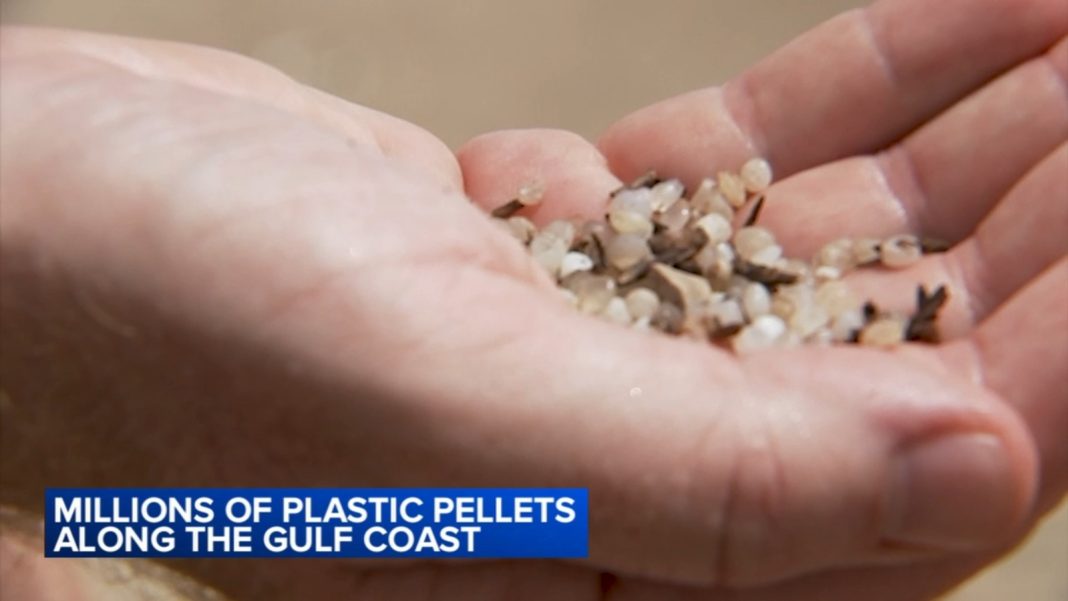Plastic Pellet Pollution: A Growing Threat to Our Waterways
Plastic pollution has become a global crisis, with devastating effects on our environment and marine life. Among the various forms of plastic pollution, plastic pellets, also known as nurdles, have emerged as a significant concern. These tiny beads, used as building blocks in plastic product manufacturing, are finding their way into our waterways, including Galveston Bay.
The issue of plastic pellet pollution in Galveston Bay came to light when Environment Texas, a nonprofit organization advocating for clean air and water, organized a clean-up event at Sylvan Beach. Volunteers were astonished to collect more than 2 million plastic pellets along the Gulf Coast. However, this is just a fraction of the estimated 10 trillion plastic pellets that enter waterways worldwide.
So, how do these plastic pellets end up in Galveston Bay? Luke Metzger, the executive director of Environment Texas, explains that companies often unintentionally discharge wastewater containing these pellets as part of their manufacturing process. While this may be legal, it demonstrates a lack of care and is likely a violation of the Clean Water Act. Metzger emphasizes the need for stricter regulations to prevent the discharge of plastic pellets into our waterways.
The impact of plastic pellet pollution extends beyond the aesthetic damage it causes to our beaches. It poses a threat to marine habitats and the livelihoods of fishermen and women who rely on Galveston Bay. Diane Wilson, a former shrimp farmer who has witnessed the devastating effects of plastic pellet pollution in Lavaca Bay, attests to this. She describes how the pollution has decimated her community, leading to the closure of businesses related to shrimping, fishing, and welding. This not only affects the sea life but also the entire ecosystem and the local economy.
In 2019, Wilson and others successfully sued Formosa Plastics for $50 million, holding the company accountable for knowingly dumping billions of plastic pellets and other chemicals into Lavaca Bay. Wilson’s determination to fight against plastic pellet pollution led her to sink her shrimp boat on the Formosa discharge pipe, symbolizing the destruction caused by these pollutants.
Recognizing the urgent need for action, Environment Texas has collaborated with lawmakers to introduce bipartisan legislation called the “Plastic Pellet Free Waters Act.” If passed, this bill would empower the U.S. Environmental Protection Agency to establish stringent regulations to prevent the discharge of plastic pellets into waterways, making it illegal. This is a crucial step towards addressing the issue at its source and protecting our precious waterways from further pollution.
Efforts to combat plastic pellet pollution extend beyond Galveston Bay. The Environmental Protection Agency (EPA) recently announced a national standard to limit the presence of PFAS, a group of harmful chemicals, in drinking water. This move aims to reduce exposure for millions of Americans and prevent thousands of illnesses, including cancer. While tap water is generally safe, it is essential to address the contaminants that some residents still face, ensuring clean and safe drinking water for all.
In conclusion, plastic pellet pollution poses a significant threat to our waterways and ecosystems. The case of Galveston Bay highlights the need for stricter regulations to prevent the discharge of plastic pellets into our precious natural resources. The Plastic Pellet Free Waters Act and the EPA’s commitment to reducing contaminants in drinking water are vital steps towards a cleaner and healthier environment. However, individual actions, such as reducing plastic consumption and advocating for sustainable practices, also play a crucial role in combating this global crisis. Together, we can protect our waterways and preserve the beauty of our planet for future generations.


